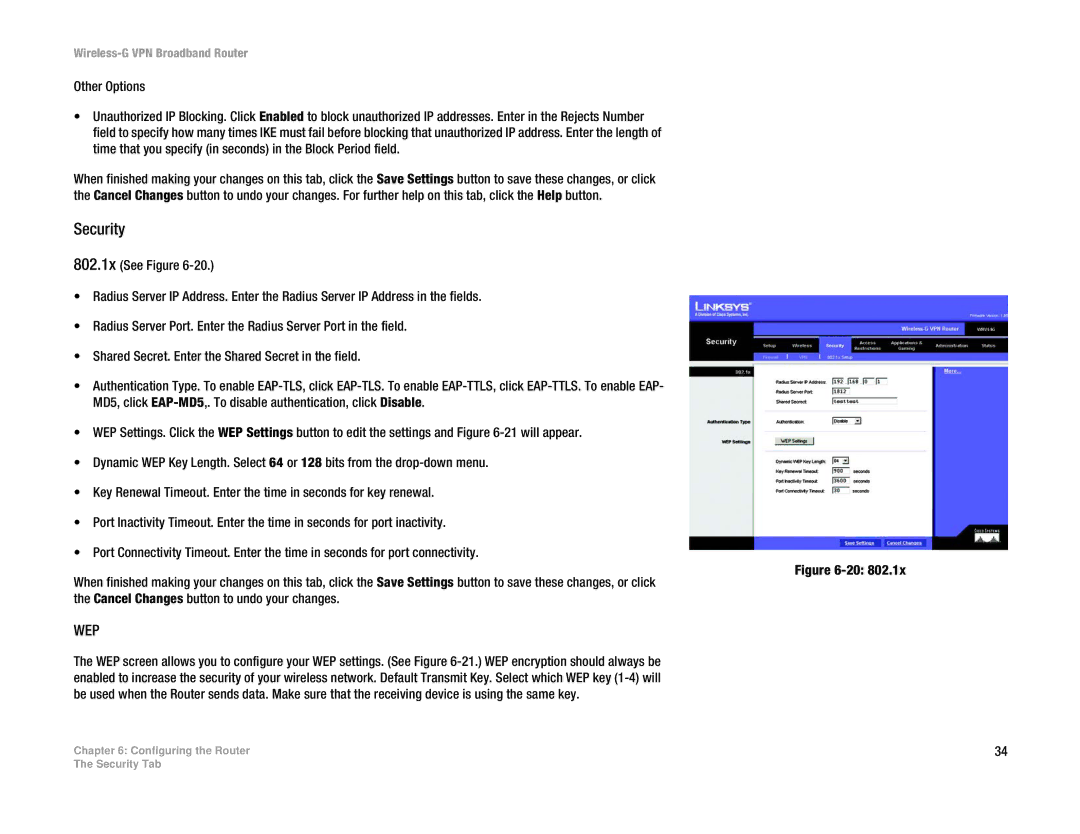
Wireless-G VPN Broadband Router
Other Options
•Unauthorized IP Blocking. Click Enabled to block unauthorized IP addresses. Enter in the Rejects Number field to specify how many times IKE must fail before blocking that unauthorized IP address. Enter the length of time that you specify (in seconds) in the Block Period field.
When finished making your changes on this tab, click the Save Settings button to save these changes, or click the Cancel Changes button to undo your changes. For further help on this tab, click the Help button.
Security
802.1x (See Figure
•Radius Server IP Address. Enter the Radius Server IP Address in the fields.
•Radius Server Port. Enter the Radius Server Port in the field.
•Shared Secret. Enter the Shared Secret in the field.
•Authentication Type. To enable
•WEP Settings. Click the WEP Settings button to edit the settings and Figure
•Dynamic WEP Key Length. Select 64 or 128 bits from the
•Key Renewal Timeout. Enter the time in seconds for key renewal.
•Port Inactivity Timeout. Enter the time in seconds for port inactivity.
•Port Connectivity Timeout. Enter the time in seconds for port connectivity.
When finished making your changes on this tab, click the Save Settings button to save these changes, or click the Cancel Changes button to undo your changes.
WEP
The WEP screen allows you to configure your WEP settings. (See Figure
Chapter 6: Configuring the Router
Figure
34
The Security Tab
